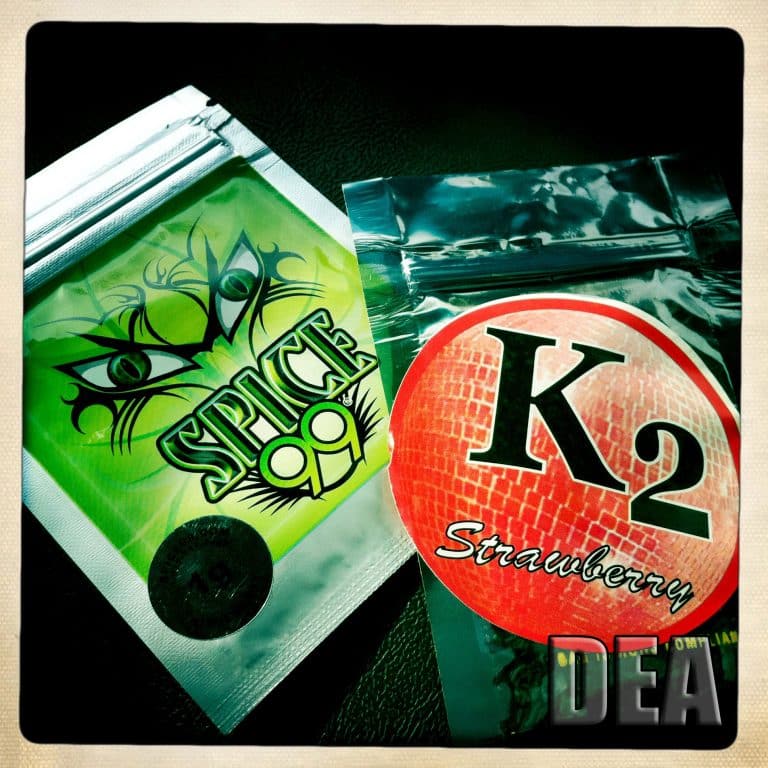Recently, more than 70 people overdosed on K2, sometimes called synthetic marijuana, in a single day and in a single location, New Haven, Connecticut. K2 overdoses have sharply increased during the past two years according to data from the Centers for Disease Control and Prevention (CDC). The CDC warns against labeling K2 as “synthetic marijuana” because even though it stimulates the same brain receptors as Delta 9-tetrahydrocannabinol (THC), it is two to 100 times more powerful and with radically different side effects.
Roger Weeks, who was one of those in New Haven when the mass overdose happened, shared his experiences with K2. “That’s just what I do. That’s my drug of choice… It’s like a PCP high, and LSD a little bit, it’s an acquired thing, the more you do it the more you like it. Sometimes you get a freak batch a couple of times a year. It’s like Russian Roulette. The addiction draws you back.”
With the changing public opinion toward marijuana, labeling K2 as synthetic marijuana may lead to the perception that the drug is a “safe” alternative to marijuana. The challenge is that all “K2” is not the same, does not affect people the same way and is constantly changing specifically in an attempt to avoid detection at laboratories or allow a user to pass a drug test. The New Haven incident was one of those “freak batches” that could be the case at any time and in many cases with much worse results.
Why do some people choose K2?
For some, it is an alternative they believe will allow them to pass drug tests. Some of the primary goals of drug testing include hiring drug-free candidates, detering substance abuse in the workforce, and assisting individuals in maintaining sobriety through ongoing monitoring during the rehabilitation process. Users may opt for K2 because its chemical components are ever-changing and thus prove challenging to detect.
What is K2?
According to the DEA, K2 is a synthetic version of tetrahydrocannabinol (THC), the psychoactive ingredient in marijuana, K2/Spice is a mixture of plant material sprayed with synthetic psychoactive chemicals. Often looks like potpourri and typically labeled “not for human consumption.” Dangerous to purchase from Internet because its origins and chemical amounts are unknown. The ingredients and strength of products containing synthetic cannabinoids are almost impossible for the user to know. It known by a variety of street names which include Bliss, Black Mamba, Blaze, Bombay Blue, Fake Weed, Legal Weed, Genie, Zohai, Red X, Dawn Scooby Skunk, and Snax.
When did it first appear in the US?
It was first seen in Europe in 2005 and is thought to have entered the U.S. market in 2008. Originally developed by scientists to study the brain’s naturally occurring cannabinoid receptors but the chemicals made their way to the public through mass-production by clandestine laboratories typically located in foreign countries. The US has passed laws banning many of the compounds used to create K2, but the synthetic cannabinoid industry continues to alter the chemical composition of the drugs they produce to avoid detection stay ahead of the government and the laboratories conducting drug testing. There were 177 different synthetic cannabinoids recorded by the National Institute on Drug Abuse (NIDA) in 2014 and many more exist now.
What to expect and how does K2 affect the body?
In 2016, NIDA reported more than 2,000 calls to poison control centers for K2 use and in 2011, hospitals reported more than 28,000 emergency room visits related to K2. Synthetic cannabinoids have a wide range of effects that vary in severity including:
• Paranoia, anxiety, panic attacks, hallucinations, and giddiness
• Addictive – Desire for more of the drug
• Increase in heart rate and blood pressure
• Convulsions, organ damage, or death
• Elevated mood, Relaxation, Altered perception
• Symptoms of psychosis
• Confusion
• Some severe side effects may include violent behavior, suicidal thoughts, seizures, and as evidenced by the incident in in New Haven, CT, a high potential for overdose.
Today, employers in the United States (US) face numerous challenges related to drug abuse and mis-use including a resurgence of cocaine and heroin use, the continuing problems stemming from the national opioid epidemic, and the constantly changing state medical and recreational marijuana legislation. The clandestine drug manufacturers work hard to elude the law underscoring the need to work harder to help make people aware of how devastating these drugs can be as evidenced by the mass overdoses in New Haven, CT.
To learn more about testing for synthetic drugs, like K2, Bath Salts, and Synthetic THC as well as other drugs, use the search function on our website or contact us at 866-843-4545. Photo Courtesy of the DEA.







